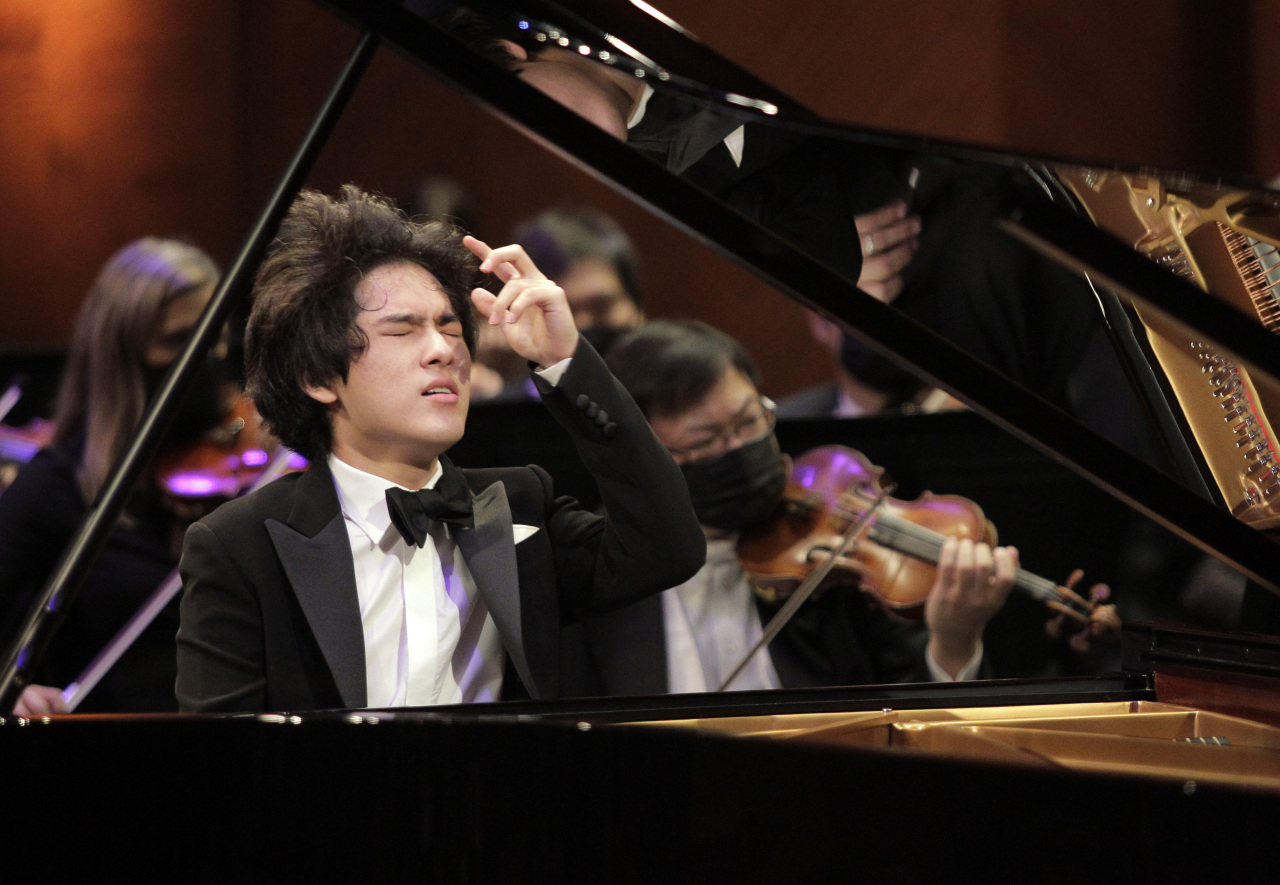 |
Pianist Lim Yun-chan performs during the final round of the 17th Van Cliburn International Piano Competition in Fort Worth, Texas, on June 17, 2022. Lim won the first prize at the competition, which makes the 18-year-old pianist eligible for alternative public service in lieu of full-time active duty service. (The Van Cliburn International Piano Competition) |
South Korea’s Military Manpower Administration has excluded six international competitions from the list of competitions that entitle the winners to military service exemption.
Effective Jan. 1, winners of two classical music contests -- The International Tchaikovsky Competition and Le Concours International de Chant de Toulouse -- and four ballet competitions -- The International Ballet Competition in Moscow, Arabesque: Russian Open Ballet Competition, International Ballet Competition-Varna and Prix de Lausanne -- will not be given military service exemption. Under the current system, the first prize winners at recognized competitions serve an art and sports public service in lieu of a full-time active duty service.
The Military Manpower Administration said that these competitions have either been excluded or suspended from the World Federation of International Music Competitions, the International Dance Council and International the Theatre Institute, which are international art federations that the MMA recognizes.
In April 2021, the WFIMC General Assembly voted to exclude the Russian government-funded competition founded in 1958, from the federation in the face of Russia’s invasion of Ukraine while it is not clear why the Toulouse, a France-based international singing competition, where South Korean tenors won Grand Prix for 4 consecutive competitions between 2008 and 2016, is not included in the WFIMC’s list in 2022.
Kim Sun-hee, Dean of School of Dance at Korea National University of Arts, known as K-Arts, told The Korea Herald on Tuesday that she understands where the Military Manpower Administration’s decision is coming from. “The MMA needs some sort of standard, but it is unfortunate that they excluded some renowned competitions just because they are not included in a federation’s list. Sometimes, organizers of competitions forget to keep their membership with federations or opt out from membership for lack of benefits,” Kim said. “Winning those competitions nonetheless have provided artists an important chance to continue their work."
While winning prizes at international competitions will not entirely exempt artists from the country’s mandatory military service, where all able-bodied male citizens between the ages of 18 and 28 must complete, those who require daily training and practice like musicians and dancers can utilize their specialties for public duty service. The public duty service period lasts 34 months, longer than active duty service, during which time the exempted artists and athletes must be active in their fields. They must also undergo four weeks of basic military training. From 2015, those who serve an alternative duty are also required to do 544 hours of volunteer service using their specialties.
One of the ways to be recommended as art and sports personnel for public duty service is by winning at least the second prize at one of the recognized music and dance competitions -- now 36 after the latest elimination of six competitions. For athletes, winning at least the third prize in the Olympic Games or the first prize at the Asian Games will also make them eligible for alternative public service where they can utilize their specialties.
The alternative duty system for artists and athletes was introduced in 1973. Since then, the Military Manpower Administration has revamped the standards for exemption several times, slashing the eligible competitions from 123 in 2008 to 36 this year, partly due to the country's declining population.
In the past five years, a total of four musicians and dancers applied for the exemption, citing one of the six competitions removed this time, according to an official at the Military Manpower Administration on Tuesday. Two vocalists who won at Le Concours International de Chant de Toulouse applied for alternative service duty in 2017. During that same period, one ballet dancer became a beneficiary of the system after winning the Arabesque: Russian Open Ballet Competition in 2016.






![[Today’s K-pop] Blackpink’s Jennie, Lisa invited to Coachella as solo acts](http://res.heraldm.com/phpwas/restmb_idxmake.php?idx=644&simg=/content/image/2024/11/21/20241121050099_0.jpg)
